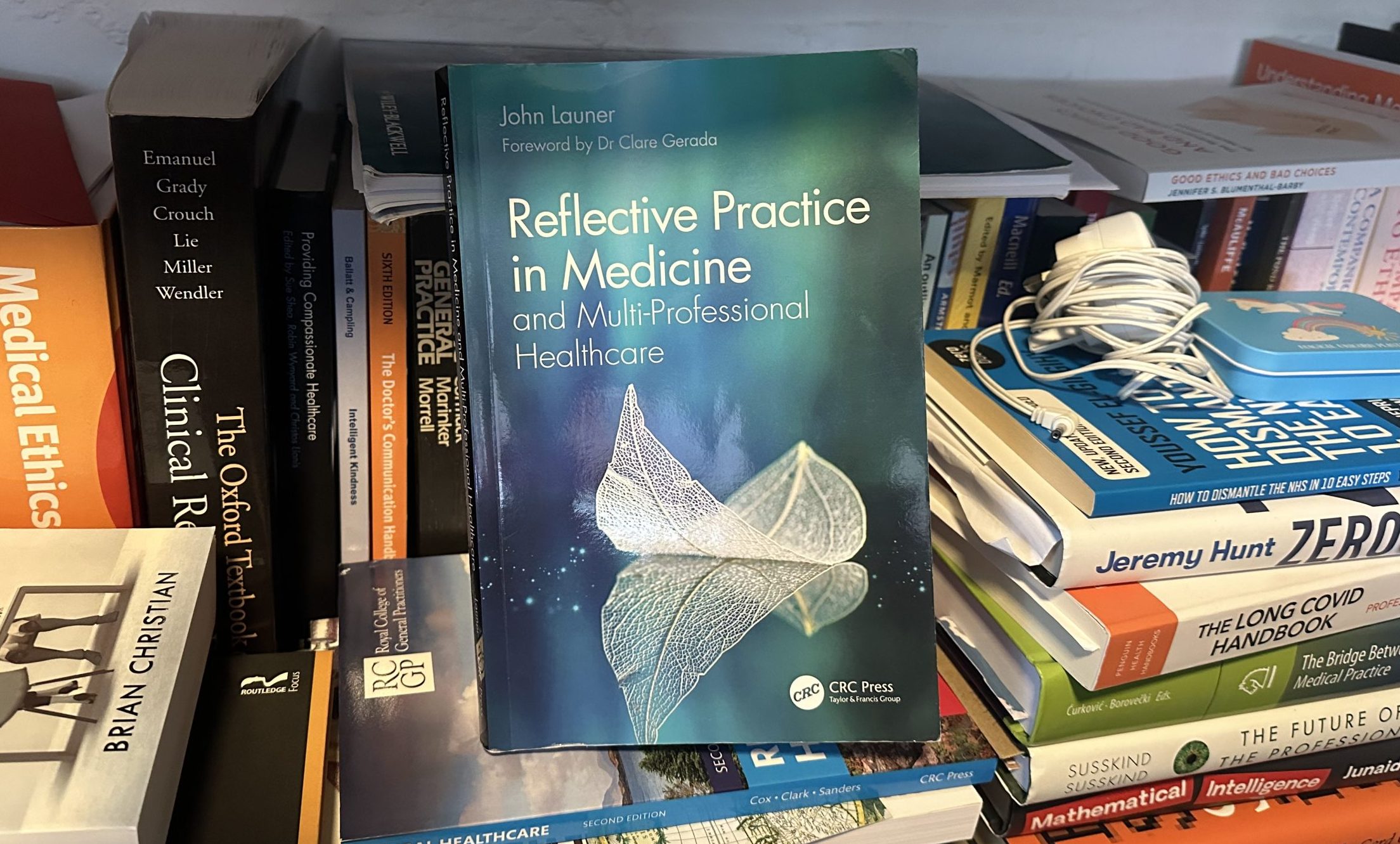
The narrative of the stressed, overworked and dissatisfied general practitioner has become so pervasive that another story about the state of the workforce won’t have surprised many of us. The Health Foundation worked with the Commonwealth Fund to compare the experiences of almost 10,000 primary care physicians across 10 high income countries (including Australia, Canada, France, Germany, the Netherlands, New Zealand, Sweden, Switzerland and the United States) in 2022. This isn’t the first time the Commonwealth Fund has run this survey and the trends are concerning. Alongside Germany, GPs in the UK experienced some of the highest levels of stress, with 71% of GPs saying that their job is ‘extremely’ or ‘very stressful’, with stress levels increasing by 11% since 2019.1
Alongside increasing levels of stress, it seems that UK-based GPs can’t get no satisfaction.
Alongside increasing levels of stress, it seems that UK-based GPs can’t get no satisfaction. In 2012, GPs in the UK were amongst the most satisfied compared to GPs in those other countries, but now just 24% of UK GPs are satisfied with their job, the lowest rates amongst their international peers. Looking at the different aspects of their work, GPs were least satisfied by their time spent on administrative tasks, workload and the lack of time available to spend with patients. General practice is a changeable beast, with wide country-specific variations in patterns of consultation length, list size and administrative burden. Another cross-country survey showing variation in job satisfaction amongst European GPs suggests that personal and practice characteristics only explain a small variation in job satisfaction, and that the explanation for variation in job satisfaction is at the level of countries and their health systems.2 Take, for example, the 10 minutes that GPs in the UK spend on average with a patient during a routine appointment. GPs in Switzerland and Sweden report spending 20 minutes with their patients, perhaps one of the reasons why primary care physicians in Switzerland and Sweden are the most satisfied of the bunch, with over 50% of GPs in these two countries reporting themselves as ‘extremely’ or ‘very satisfied’.1
Increasing workload and stress are making GPs in the UK less satisfied. The contributors to workload are multifactorial, with GPs describing increased patient needs and expectations, greater task-shifting from secondary to primary care and increasing bureaucracy.3 Although workforce shortages and increasing patient complexity and demand are key drivers of workload, it is the unnecessary administrative work that seems to be driving dissatisfaction amongst GPs. The 2022 GP Worklife Survey indicated that GPs spend only 60% of their time in direct patient care and 30% on indirect patient care and tasks (such as writing referrals, checking results or other administrative tasks). GPs reported the greatest stressor in the job was the increasing workload and paperwork and not having enough time to do the job (presumably, spending time looking after patients) properly.4 Talking about time, Mary Dixon-Woods and colleagues published an interesting mixed-methods study here in the BJGP directly observing GPs and categorising how they spent their time. Unfortunately, the study didn’t capture anything that happened before the ‘official’ start and end of a session, so the time spent during those early mornings logging in to clear tasks, or working through lunch or at home were not counted. However, the authors do comment that a lack of time in the formal clinical session meant that GPs were rushing through tasks, increasing their stress and worry about making mistakes.5 If stress, being overloaded with unnecessary administrative details and not having enough time contributes to dissatisfaction, this doesn’t sound like a satisfying way to spend a session and probably resonates with many other GPs.2
Levels of stress and satisfaction have implications for perceptions of work and decisions about whether it’s worth carrying on.
Levels of stress and satisfaction have implications for perceptions of work and decisions about whether it’s worth carrying on. In the Health Foundation survey, stress, burnout and emotional distress influenced future career plans, with GPs in the UK the most likely to stop seeing patients regularly in the next 1-3 years compared to their international peers. The GP Worklife Survey warns of a mass exodus of GPs from the profession, with a third of respondents planning to quit direct patient care within the next five years. Whether these intentions translate into practice are unclear, but data from NHS Digital over a rolling 12 month period showed an increase in the rate of leavers from general practice to 8.8% up to December 2022, with a large increase of 21.9% of GPs aged under 30 leaving the service.6
So, what next? The authors of the Health Foundation report suggest that decisive policy action is needed to improve GPs’ working lives by recruiting more GPs and reducing the administrative burden to make general practice a more sustainable career.1 Where dissatisfaction is associated with higher workload or a heavy administrative burden, organisational changes are the likely solution, and along these lines, NHS England have floated a raft of ideas, including the government’s Bureaucracy Busting Concordat and adding a GP assistant role to the Additional Roles Reimbursement Scheme (ARRS). The British Medical Association has stepped into the mix, suggesting that GPs should push back on tasks such as sick notes, Personal Independence Payment, housing and DWP forms, though some of the items on their list of bureaucratic tasks to re-delegate seem like good clinical care (death certificates and prescribing end of life medication).7 With a promises of an NHS England primary care recovery plan this spring, the current government is promising ‘decisive’ policies to tackle workload and the bureaucratic burden. Macro-level changes at the level of organisation of general practice in the UK will not be a quick fix, but action is needed to improve the working lives of stressed, overworked and dissatisfied GPs who are voting with their feet.
References
1. Beech JF, C.; Gardner, T.; Buzelli, L.; Williamson, S.; Alderwick, H. Stressed and overworked. London: The Health Foundation; 2023.
2. Stobbe EJ, Groenewegen PP, Schafer W. Job satisfaction of general practitioners: a cross-sectional survey in 34 countries. Hum Resour Health. 2021;19(1):57.
3. Croxson CH, Ashdown HF, Hobbs FR. GPs’ perceptions of workload in England: a qualitative interview study. Br J Gen Pract. 2017;67(655):e138-e47.
4. Odebiyi BW, B.; Gibson, J.; Sutton, M.; Spooner, S.; Checkland, K. Eleventh National GP Worklife Survey 2021. Policy Research Unit in Commissioning and the Healthcare System.
5. Sinnott C, Moxey JM, Marjanovic S, Leach B, Hocking L, Ball S, et al. Identifying how GPs spend their time and the obstacles they face: a mixed-methods study. Br J Gen Pract. 2022;72(715):e148-e60.
6. General Practice Workforce, 31 January 2023: NHS Digital; 2023 [Available from: https://digital.nhs.uk/data-and-information/publications/statistical/general-and-personal-medical-services/31-january-2023.
7. Colivicchi A. BMA ‘working with DH and NHSE’ on removing bureaucratic GP work 2023 [Available from: https://www.pulsetoday.co.uk/news/breaking-news/bma-working-with-dh-and-nhse-on-removing-bureaucratic-gp-work/.
Featured photo: ‘Hear no evil etc…’ by Andrew Papanikitas, 2022









In a podcast recorded by the Medical Republic, Jens Sondergaard outlined six main reasons it’s great to work in Danish general practice. Nada Khan weighs up the evidence for moving to Denmark.
[…] example, it’s been widely reported that the number of GPs has fallen 4%-5% in recent years and many doctors who remain in general practice report feeling stressed and over-worked. It’s no wonder, then, […]
[…] example, it’s been widely reported that the number of GPs has fallen 4%-5% in recent years and many doctors who remain in general practice report feeling stressed and over-worked. It’s no wonder, then, […]